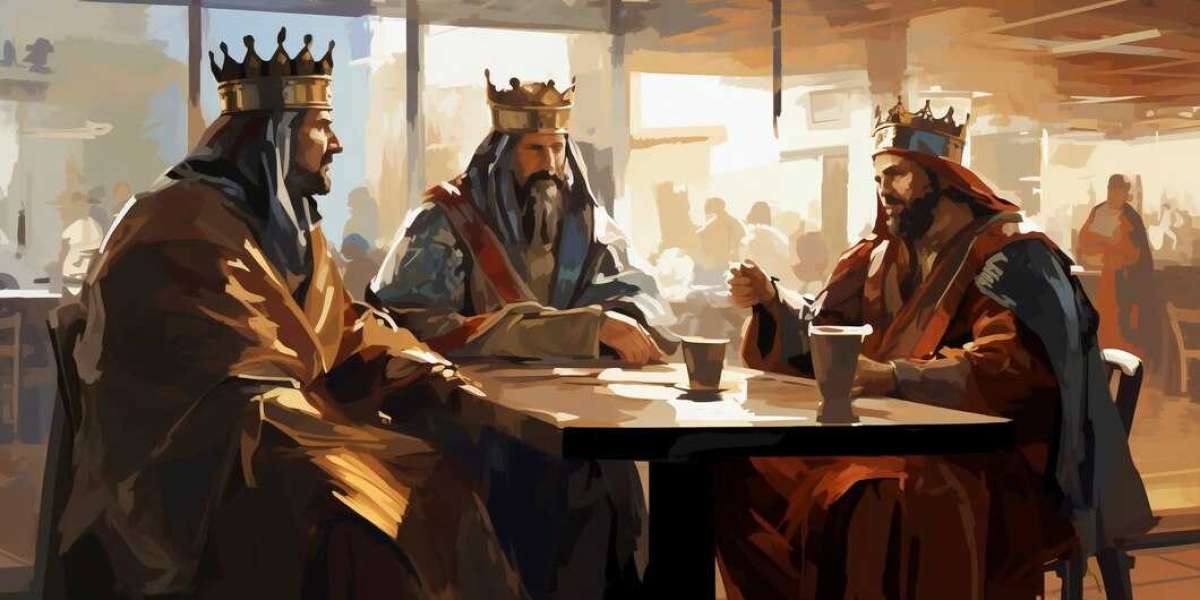Governance is not just about creating laws or appointing leaders; it is more like a high-stakes game of influence, shifting alliances, and, let us be very frank, a bit of sabotage.
What really happens behind those closed doors? How are the decisions made when each player has his own agenda? From the most corporate boardroom to the most fantastical kingdom, the dynamics of power are as interesting as they are complicated.
In Ordinary Power: Focus Chamber by Martin G. Elliott, the Council of Eight captures this tension and drama exceptionally well—a group of elemental clan leaders who both steer and collide over the kingdom's fate. But who, in reality, holds the reins? And at what cost?
Much like modern governments (minus the floating disks and telekinetic powers), the Council shows how collaborative leadership can be a seesaw of balance and chaos. One moment, they’re passing resolutions; the next, someone’s conjuring fire or raising literal dirt over a dispute.
Meet the Players: Power, Politics, and Personalities
The Council of Eight isn’t just a governing body; it’s a collection of iron-willed individuals who bring their agendas, ambitions, and grudges to the table. Imagine a family dinner where every relative is both immensely powerful and slightly irrational, except this family also controls the elements.
- The King’s Chair: Cush’s Role as Leader and Wildcard
King Cush is now leading the Council but is greatly suspected of his role as he falls sick and becomes obsessed with the Chamber. Indeed, cherished Cush finds parallelism between maintaining his throne and real-life scenarios, whereby most leaders have to struggle with their exposures.
- The Clans’ Champions: Earth, Fire, Water, and Air
Each clan is an important piece of the fabric of the kingdom. Whether it is the industrious Earth Clan under leadership of Elizabeth or fiery provocations of Nain from the Fire Clan, these leaders go to show how diversity of governance brings both strength and friction. Their debates over the resources or territory seem a fantastical twist on current geopolitical squabbles.
- Sethos and the Shadows of Security
The commander of the Royal Guard, Sethos, brings to the Council an edge of espionage, adding a hint of secrets and hidden motives. For all his cleverness at manipulation, there is that subtle balance of protection with intrusion- a good reminder about where power sits in life: in those who take their positions hidden.
Balancing Acts: Cooperation and Competition in Leadership
Here’s the kicker: governance thrives on equilibrium. In Common Power: Focus Chamber, the ongoing pulling and pushing for cooperation and competition in the Council captures real-life issues in shared leadership. Cooperation is essential because it guards against resource misallocation and disasters, whereas unfettered competition threatens complete chaos- the elemental disaster, in this instance.
Consider Nain and Elizabeth here in their quarrel about interfacing over personal resources by means of fire and earth. This, in turn, internalizes a burning personal grudge and obstructs any efforts for group development. But sometimes teaming, such as when Adam donates his Elites to Earth Clan, speaks of the potential for unity amidst differences. It is not exactly a hot-cold scenario. One moment exciting and dramatic, the next very literal as well, is a roller coaster ride.
Hidden Agendas: The Real Game of Thrones
Politics is not merely about meetings. It's about what is unsaid, what is whispered, and what is plotted. For Sethos, he was not only guarding borders; he was also involved in deep covert experiments for the son of King Cush. But that is nothing compared to the secrets that King Cush keeps, which can shatter kingdoms and possibly his love life, too.
The Council of Eight reminds us that power is rarely straightforward. It's about leverage, influence, and knowing when to hold your cards or conjure a tornado to prove your point.
A Glimpse into the Heart of Ordinary Power: Focus Chamber
Ordinary Power: Focus Chamber by Martin G. Elliott is much more than a fantasy story; it is a splendid mosaic of elemental dominion, political intrigue, and profound human struggles. In the kingdom where telekinetic prowess is as commonplace as family feuds, ambition dances precariously along with responsibility. While the famous debate of the Council of Eight or King Cush's personal battles are unfolding, Elliott will quite dramatically build a magical yet familiar world.
Whether it be a prodigy mastering the art of controlling his power, or a king torn between love and duty, the book deals with such critical aspects of control, legacy, and resilience with much black humor and emotional intensity. Power is not simply about who has it, but rather about the choices they make in holding it. This blog delves into the political dynamics, rivalries, and delicate balance of power within the Council of Eight, exploring how each member shapes the kingdom’s future.
The Tightrope Walk of Governance
In both fantasy and reality, governance isn’t about having all the answers; it’s about asking the right questions, navigating alliances, and knowing when to compromise. The Council of Eight is a brilliant microcosm of this tightrope walk, balancing cooperation and competition with stakes as high as life itself.
Whether you’re debating zoning laws or deciding how much sand a fire clan needs, the lesson remains: leadership is messy, powerful, and, above all, a shared endeavor. As Ordinary Power: Focus Chamber by Martin G. Elliott reminds us, the fate of a kingdom or any group…depends on the ability to keep that balance intact.














